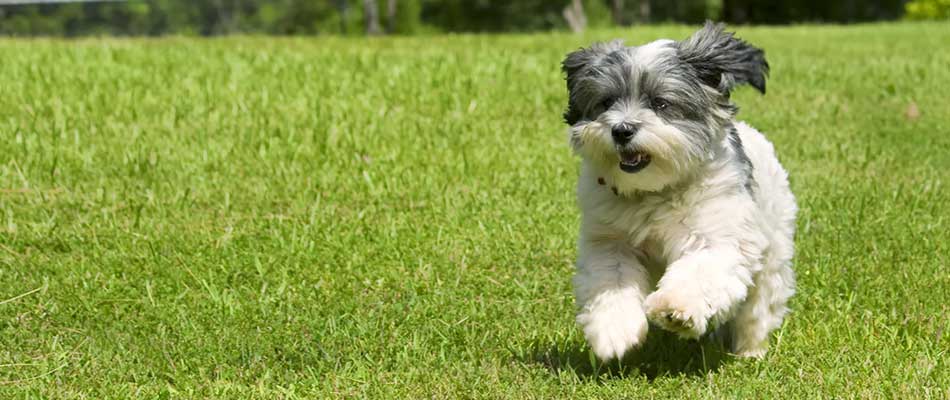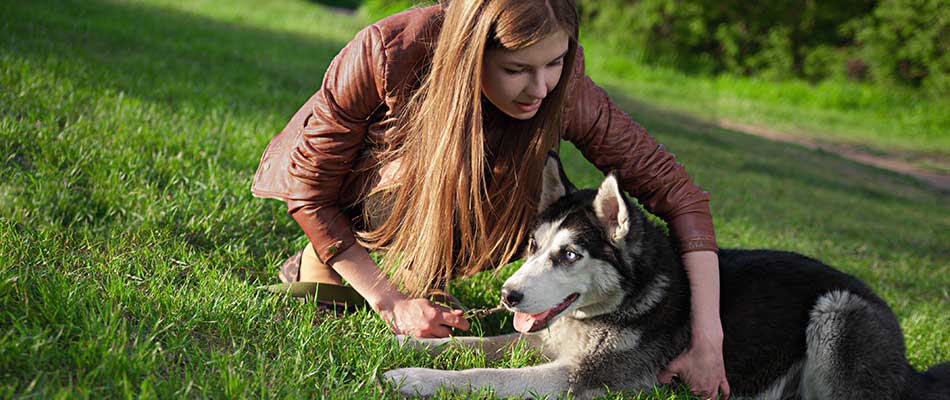When is My Lawn Safe After Weed and Feed
How Soon Can Kids & Pets Use a Lawn After Treatment?

Getting a lush, green lawn takes a lot of routine maintenance and work, including regular fertilization and weed control treatments. Lawn care professionals often are asked if these treatments are safe for kids and pets, and the answer depends on a few things.
Learn here if fertilizer and weed control treatments are safe for your pets and children in areas such as Leominster, Lunenburg, Concord, and neighboring areas of Massachusetts.
Children Should Be Kept off a Yard for 24-72 Hours After a Fertilization Treatment
It's no secret that kids love playing outside and getting into messes, but should they be on your lawn if it receives routine fertilization treatments? After the fertilizer has been completely absorbed into the soil, yes. It's generally recommended to wait about 24-72 hours after a fertilizer application before letting your kids go back onto the grass and to also ensure your lawn is watered well before the kids go back to playing in the grass. This not only keeps them safe from chemicals, but it also allows your lawn to absorb the nutrients without being disturbed. The time window depends on the product being applied, so it is best to check with your lawn care professional for information.
Organic fertilization treatments are generally safer for kids, as they do not contain herbicides or insecticides, but it's still recommended that you give your grass time to absorb those treatments as well.
When a Fertilized Lawn Is Safe for Dogs & Pets

Like children, dogs and other pets also enjoy playing and running through the grass. But after fertilizing, it's also best practice to limit their use of the lawn for 24-72 hours. They're much closer to the ground and prone to digging in the soil, which means they are more likely to be exposed to herbicides and insecticides. With the increase in pet allergies in recent years, please check with your veterinarian if you are concerned about any of the products being applied to your lawn.
If you happen to have any unused bags of fertilizer on your property, keep it locked away from pets so they do not try to claw into the bags. This is especially important with organic fertilizer, as some of these products are made from animal bone or byproducts. If your pet ingests too much organic fertilizer, you could be staring down a costly vet bill as it can cause bowel obstruction and other indigestion issues.
Consult with a lawn care company such as Gatsby Grounds Company about when it's safe for kids and pets to use your lawn again after a fertilization treatment.
Fertilizer Is Often Applied Along with Weed Control & Insecticide Treatments
Throughout the year, fertilizer treatments are often applied along with weed control treatments and insecticides, which can also cause reactions in pets and children. Please consult with your lawn care company to inform yourself of the weed controls and insecticides that are used on your property and the rates at which they are being applied. They will also provide you with re-entry intervals to make sure best practices are followed.
While there is some time restriction on how long to wait after these treatments, keep in mind that these treatments also work to keep your lawn safe for kids and pets. Some weeds are poisonous when consumed and lawn insects, such as ticks, can create a hazard area as well.
Call our lawn care professionals to learn more about our fertilizer and weed control treatments.
At Gatsby Grounds Company, attention to detail is everything. We will work with you to advise you on when it's safe to use your yard after a fertilizer and weed control treatment in areas such as Leominster, Concord, Lunenburg, and surrounding Massachusetts areas. Contact our lawn care professionals today at (978) 582-1594 to learn how we can help your yard look amazing so that your kids and pets have a great area to play!
Source: https://gatsbygrounds.com/blog/how-soon-can-kids-pets-use-a-lawn-after-treatment/
0 Response to "When is My Lawn Safe After Weed and Feed"
Post a Comment